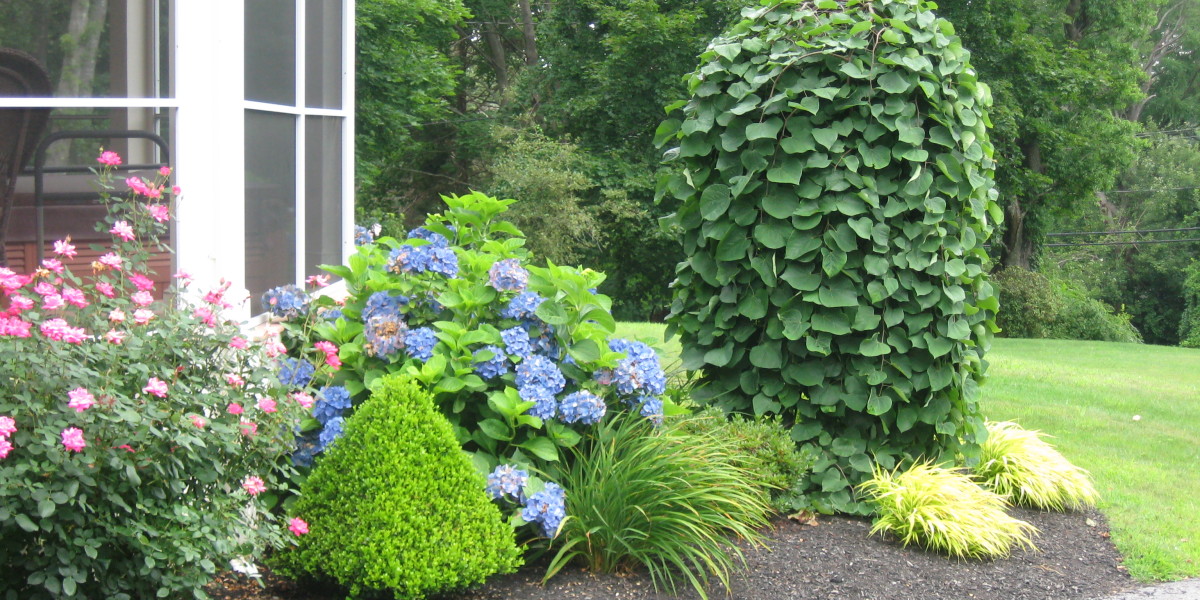 There are many types of garden mulch to choose from, but some are better than others. Here is a list of commonly used mulches: Pine bark, hemlock, color-enhanced wood mulch, leaf mulch, peat moss, buckwheat hulls, fresh wood chips, compost.
There are many types of garden mulch to choose from, but some are better than others. Here is a list of commonly used mulches: Pine bark, hemlock, color-enhanced wood mulch, leaf mulch, peat moss, buckwheat hulls, fresh wood chips, compost.
Mulch should serve four main purposes:
- It should suppress weeds.
- Help retain moisture to the soil.
- It should be aesthetically pleasing.
- Very importantly, it should improve the soil by adding organic matter as it decomposes.
If the mulch you use does not meet these criteria, then we suggest you try something different. In our opinion, leaf mulch, also called leaf mold, is the best material to use for all of the above reasons. Not only does it meet these criteria, but it holds its color indefinitely, the texture is very fine, and it decomposes into compost within one or two seasons. Leaf mulch is an organic mulch and is also the most sustainable of all the choices. Aged pine bark or hemlock mulch is the second best.
Some people like fresh wood chips, but they are not a good choice for some gardening purposes. It will help suppress weeds and retain moisture, but it is not as aesthetically pleasing as it's light in color, very coarse, and as it decomposes, it ties up nitrogen at the surface of the soil. Most plants will not be affected by this phenomenon, but if you are planting vegetables or annuals then it will likely affect their productivity. On the other hand, wood chips can often be obtained for free, and if you are mulching a large area comprising mainly of trees and shrubs, then it could be an appropriate choice.
Color-enhanced mulches are gaining in popularity because they hold their color for a long time. My main complaints with these mulches are that they seem to compact and form a hard surface and they take a long time to decompose. I personally don't care for the color choices because they aren't very natural looking, but this is completely subjective. I also don't like the fact that when you are gardening on your knees, the color stains your clothes, skin and gloves and is difficult to wash out. There is also concern that color-enhanced mulch may be somewhat toxic, but this is controversial.
Peat moss is not used very often any more for good reason. It's very expensive, not sustainable and it seems to repel water once it dries out. It also moves around readily with wind and heavy rain.
Buckwheat hulls also blow around and get washed away easily. They can work well in very small gardens such as an herb garden or small annual or perennial bed where the grade is level.
Compost can also be used as a mulch, but if you have weed issues and a fair amount of bare areas that are exposed to sunlight, then you may have a serious weed problem by using compost.
There are many opinions and varying points of view on this subject, but these are simply my observations and experiences in dealing with many types of mulching materials through the years. Your experiences may be different.
For more information on mulching your gardens, contact Fine Gardeners.